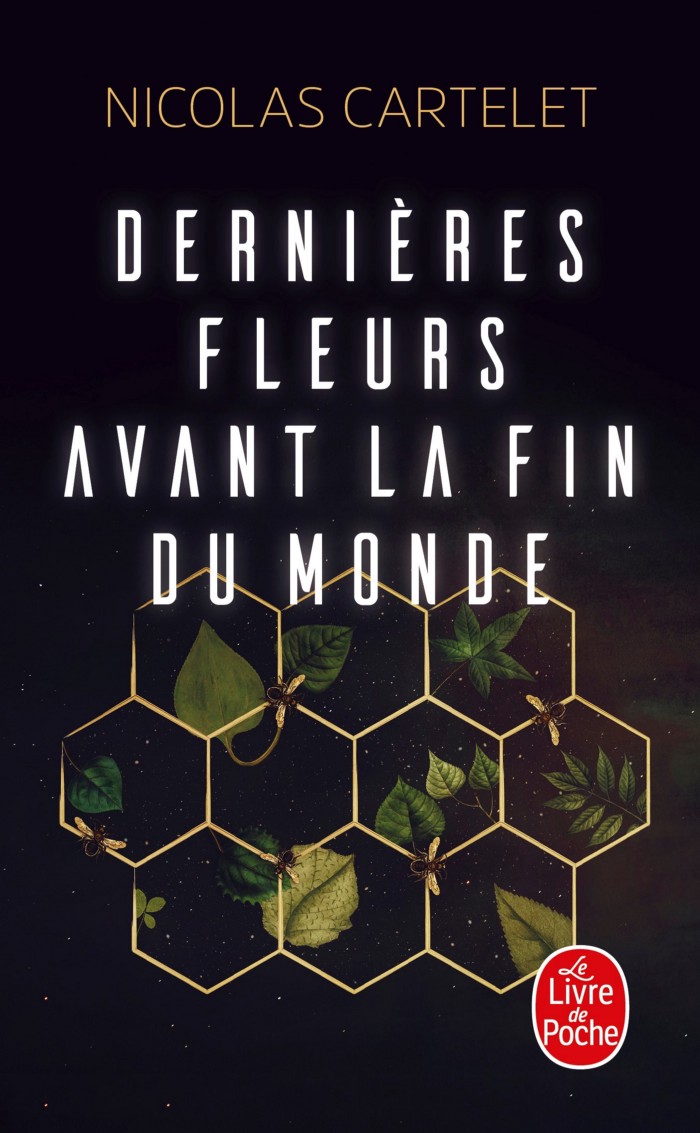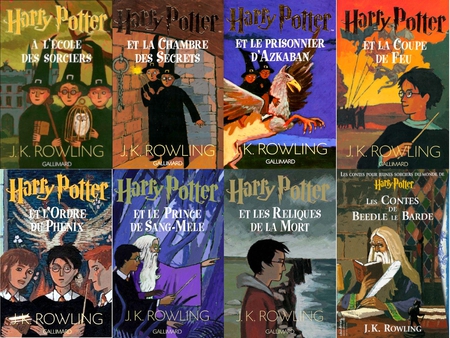Can the death of a tiny insect drastically change the course of things? What would happen if the smallest rung of the food chain suddenly disappeared? 
- Author: Nicolas Cartelet
- Release date in France: 2020 for the paperback version / 2018 for the large format version
- publishers: Le Livre de Poche / Le Peuple de mü for the large format version
- 192 pages
- Pocket price: 7,20€
Last flowers before the end of the world, a novel of pessimistic anticipation
We are in a dystopian world, where hope holds only a little. Lives are regulated by the minute, minds muzzled and freedom… unattainable. The cause of all this: the disappearance of bees. Despite the warnings, the consequences of techno-scientifically advanced societies have destroyed the balance of the planet. Chaos is brewing, slowly but surely. Nicolas Cartelet is building a possible world using the foundations of our current societies… taken to the extreme. And its starting point – or maybe it's the end of everything? – These are the flowers. What could be more poetic to start a novel than to announce the disappearance of pollinating insects… "The siren marked the end of the five hours of work. She was screaming from the barracks, so loud that she could be heard all the way to the far reaches of the East plantations. We waited for it, we had tamed the weather and the fields, not being able to rely on the sun which, for a long time, no longer showed itself at home. Last Flowers Before the End of the World is positioned as a future pioneer in dystopian literature based on ecological predictions.
Lives erased by routine
Albert works in the fields. He and his efficient team are responsible for hand-pollinating cherry trees. Without them, no flowers, no fruit, no insects… no biodiversity. But the work of artificial pollination is not easy. Routine, fatigue and time begin to weigh on everything he has: his daily life, his intimacy, his life as a couple, his morale, his sleep … He and his wife Manon have been living for years in a small apartment located in an urban area where many workers like them live. Every evening, he returns from the fields with his sack of potatoes. The lights are lit at 9pm sharp. So, he must prepare the meal, warm up, enjoy a short moment of light before extinction. Ten minutes later, everything stops. Ten minutes is the amount of time they have electricity. Their entire lives are punctuated by restriction. The Earth's resources have become scarce, expensive and dispensable. Slowly, as his wife descends into madness, Albert tries to hold on to what he can. One day, convinced that his less and less exemplary behavior would earn him punishment, he is offered a position in a wealthy family, that of the Duke. He will learn to believe in himself again thanks to the young Apolline, to whom he gives reading lessons… between laughs. "For it must be said that she was straight out of a dream, Apolline, she was incredibly pure, pretty, disarmingly beautiful, as I had never known, and swayed her ill will in learning to read by a character of dew and light, light, light. »
A warning about our world: biodiversity is dying
Last flowers before the end of the world tells the story of a dystopian future where hope hangs on a flake of pollen. Where men replace bees, and where everything is set to the minute. It looks accurately and realistically at the concerns of the 21st century about biodiversity and energy : how long will we be able to enjoy what the planet offers us, before everything disappears? In our ultra-technological world where machines replace humans and millions of animals die every year, there is still hope. Nicolas Cartelet is also the author of the space opera trilogy Néagè (2016), as well as Petit Blanc (2020), published on the Mü label. A short and intense novel about hope, which places humans in the dynamics of nature: implacable, vital, it deserves to be protected… to protect ourselves.







































